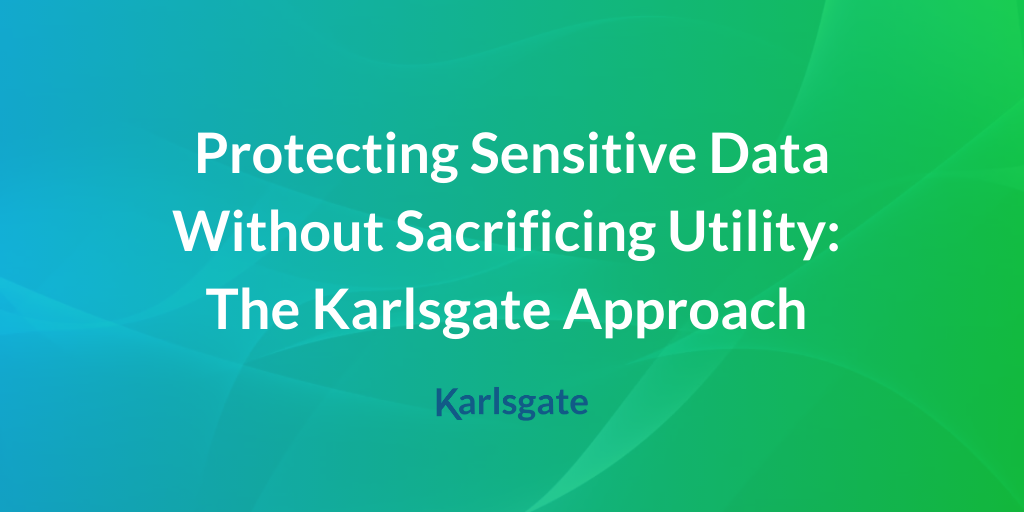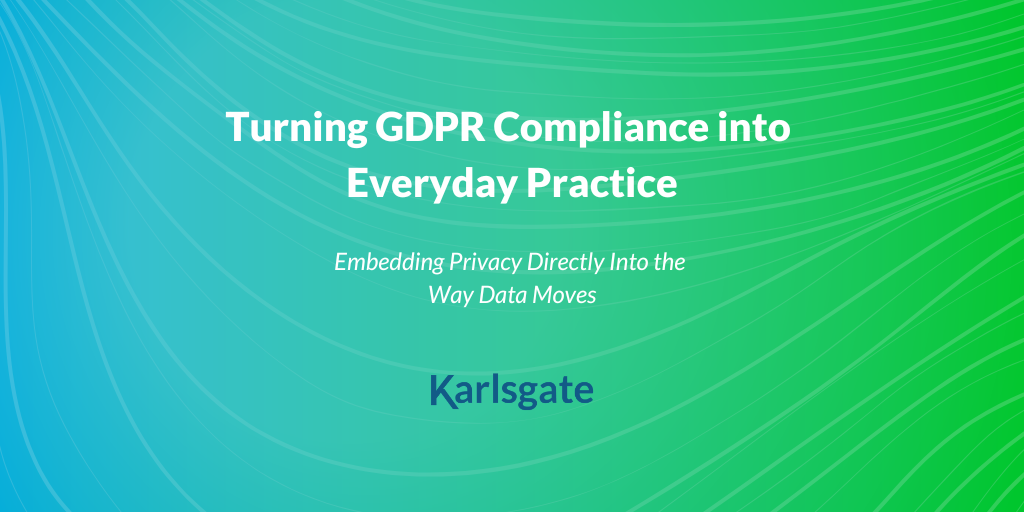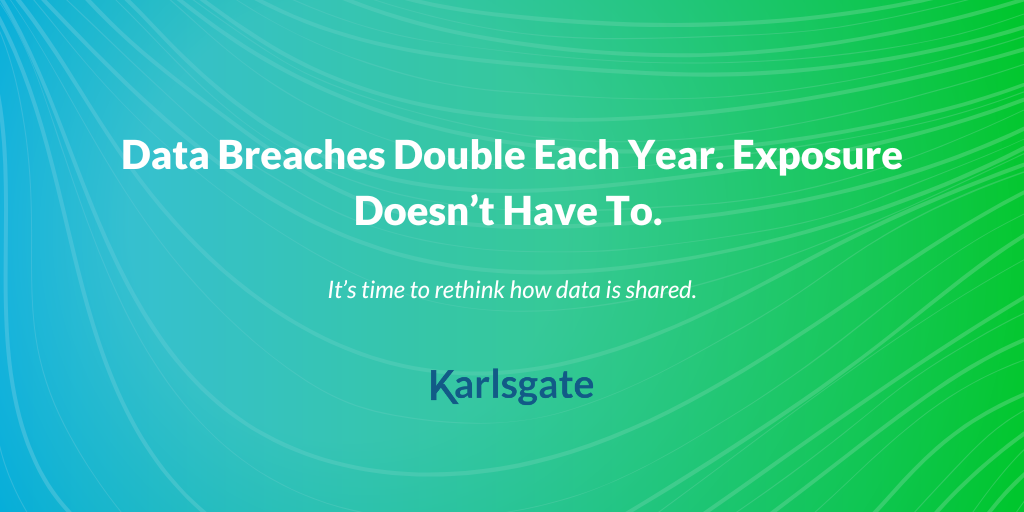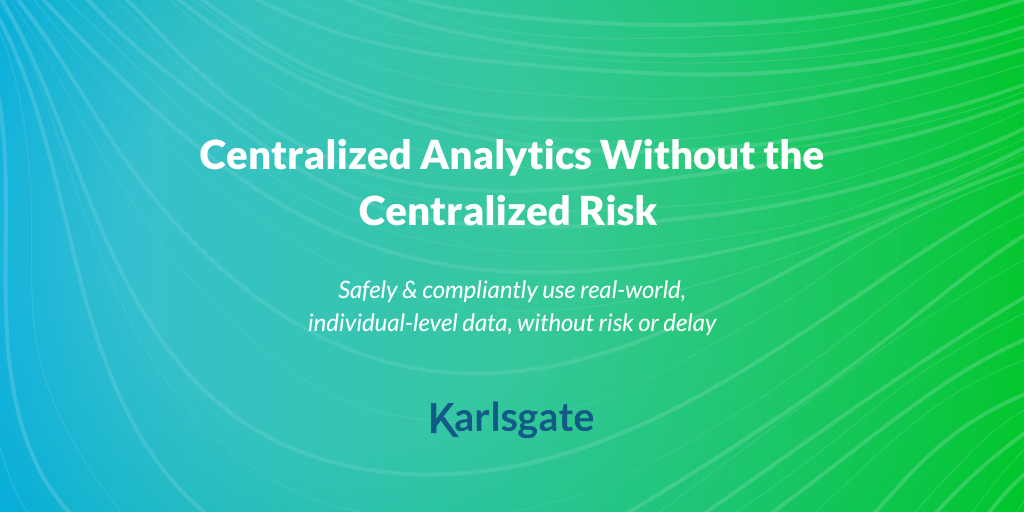Successful advertising is about more than reaching an audience—it's about whether that reach leads to real-world outcomes. For brands, measurement is just as crucial as activation. They need to...
In today's data-driven world, the ability to share and collaborate with data is crucial for innovation. However, this need for increased data sharing often conflicts with complex regulatory requirements. A recent study from Karlsgate highlights this challenge:
- 84% of IT leaders agree they'll need to change data practices to comply with changing privacy regulations.[1]
- 79% of IT leaders say privacy guidelines slow their data strategy plans.[1]

These statistics underscore the tension between data utilization and regulatory compliance. This trend is particularly evident in healthcare, which is projected to generate about 30% of global data by 2025[2].
Recognizing the value of data collaboration, a significant majority of companies are taking action. According to research, 75% of organizations are planning to expand their shared data analytics and reporting initiatives in the near future[3]. This move towards greater data sharing and collaborative analysis reflects the growing understanding that leveraging collective data insights can drive innovation and improve decision-making across various sectors.
However, this drive for increased data sharing and collaboration is often at odds with the complex and dynamic regulatory requirements that govern many industries. As organizations prioritize the power of shared data, they must also navigate a complex landscape of compliance regulations and data protection mandates. Privacy Enhancing Technologies (PETs) have emerged as a solution to bridge this gap.
Regina Gray, COO of Karlsgate, emphasizes:
“Protecting data just enough to meet regulations is simply no longer safe enough, as evidenced by recent cyber-attacks on Snowflake, Ascension, Change Healthcare, and the users of MOVEit, to name a few. However, protecting data to the point in which its utility is diminished is not sufficient either. This is why the critical need to adopt PETs isn’t just an option – it’s a necessity that can truly transform industries.”
This article explores the complexities of regulated data sharing and provides insights into strategies for balancing collaboration and compliance.
The Data Sharing Landscape in Regulated Industries
In response to regulatory pressures, some organizations attempt to achieve compliance through exceptions and by signing Business Associate Agreements (BAAs). While this approach may seem to address regulatory concerns, it often leads to unintended consequences and increased risks.
By making exceptions and sharing data with business associates, organizations may lose direct control over data handling and protection, introduce new potential points of vulnerability, increase the risk of data breaches, face challenges in managing multiple BAAs and exceptions, struggle to ensure consistent compliance across all data-sharing relationships and develop a false sense of security without addressing underlying data protection needs.
This situation underscores the need for more comprehensive and secure approaches to data sharing that maintain compliance while enabling collaboration. Organizations are increasingly driven to pursue data collaboration for several compelling reasons. Enhanced decision-making, improved efficiency, accelerated innovation, and the ability to deliver personalized customer experiences are key motivators pushing businesses toward greater data sharing and collaboration.
Despite these potential benefits, public concern about data practices remains high. A Pew Research Center survey found that 72% of Americans support increased regulation on company data practices[4], highlighting growing consumer concerns about how their personal information is handled and protected.
Common Challenges and Misconceptions
Challenges in Accessing and Utilizing Shared Regulated Data
- Collaborating while ensuring data integrity: Of the ten largest healthcare breaches in recent years, more than half were reported to involve third-party partners/vendors with business associate agreements, or BAAs.[5].
- Implementing access controls: Access control breaches account for 34% of all data breaches[6].
- Tracking data lineage: 69% of organizations struggle to maintain comprehensive data lineage[7].
Common Misconceptions
- The illusion of "locked down" data: Many companies inadvertently create vulnerabilities by making exceptions and creating data copies.
- Lack of compliance options: A growing ecosystem of technologies and strategies exists for secure, compliant data sharing.
- One-size-fits-all solutions: Each industry and organization has unique requirements that need tailored solutions.
Privacy-Preserving Technologies and Compliance Strategies
Privacy-Enhancing Technologies (PETs) are crucial tools for regulated data sharing. They focus on minimizing data exposure while maximizing utility.
Key types of PETs include:
- Data Minimization and Purpose Limitation Techniques
- De-identification Methods (Anonymization and Pseudonymization)
- Advanced Cryptographic Methods (Homomorphic Encryption and Secure Multi-Party Computation)
Compliance strategies enabled by PETs include robust access control, comprehensive data governance frameworks, and continuous compliance monitoring. Innovative solutions in the PET landscape such as the ones provided by Integral and Karlsgate are enabling secure collaboration:
- Integral's Pre-Purchase Evaluation and Automated Compliance Technology
- Karlsgate's Triple-blind Identity Mapping Protocol (T-BLIMP)
Brian Mullin, CEO of Karlsgate, explains their solution:
"The inherent problem with traditional encryption lies in the cycle of encrypting data, transferring it, and then decrypting it at its destination—this process reintroduces the risk of re-identification and often overlooks critical privacy regulations when it comes to data control. At Karlsgate, we've gone beyond standard encryption to address these vulnerabilities. Our advanced cryptographic protocols not only secure data at rest and in transit but also ensure its protection during active use, eliminating the risk of re-identification. By doing so, we also surpass global privacy requirements, providing our clients with a comprehensive solution that maintains data integrity and security across all stages."
Implementing a Holistic Approach to Data Privacy and Compliance: Best Practices and Strategies
A comprehensive strategy for ensuring data security and regulatory compliance in regulated data sharing involves several key elements:
- Conducting pre-purchase evaluations of datasets
- Implementing privacy by design principles
- Establishing robust data governance frameworks
- Leveraging specialized solutions for ongoing compliance
- Adapting strategies as regulations evolve
- Conducting regular security audits and assessments
- Providing ongoing staff training and education
- Leveraging Privacy-Enhancing Technologies (PETs)
These practices serve as the foundation for successful data collaboration initiatives, helping organizations strike the delicate balance between data utility and protection. By prioritizing these elements, companies can create a secure environment for data sharing that not only meets regulatory requirements but also fosters innovation and trust among stakeholders.
However, implementation challenges include resistance to change, integration issues, keeping up with evolving regulations, and balancing data utility with privacy requirements.
Shubh Sinha, CEO of Integral, emphasizes:
"In today's rapidly evolving regulatory landscape, a fragmented approach to data privacy and compliance is no longer sufficient. Data level tooling combined with manual consulting services creates a loss in data utility and privacy. Organizations that adopt a holistic strategy that seamlessly integrates technology end to end will reap the benefits: privacy by design principles, robust governance, and configurable compliance solutions and gain an early competitive advantage. At Integral, we've observed that companies implementing a comprehensive approach not only achieve better compliance outcomes but also greater value from their data-sharing initiatives. The key is to view compliance as an enabler of trusted, innovative data collaborations."
This sentiment is echoed by Debbie Reynolds, Global Data Privacy and Emerging Technology Advisor, who states:
"In order for organizations to thrive with data, they must evolve their vision to recognize that Data Governance is not a chore but the foundation that will enable them to go as far as they want to go with data and determine how fast they would like to achieve those key benefits to fully leverage data."
.png?width=4187&height=2355&name=Enable%20Collaboration%20with%20Regulated%20Data%20(6).png)
The Future of Regulated Data Sharing
Emerging trends include:
- Increased adoption of federated learning and analytics
- Integration of AI and machine learning in compliance monitoring
- Enhanced interoperability standards for secure data exchange
- Growing emphasis on data ethics and responsible AI
Integral and Karlsgate don’t just follow these trends; they empower organizations to lead within these areas through innovative solutions, setting the standard for secure and compliant data sharing. As reliance on data and data sharing continues to grow, Integral and Karlsgate's expertise becomes even more critical in ensuring that organizations can innovate while maintaining the highest standards of security and compliance.
Conclusion
Navigating regulated data sharing requires balancing collaboration and compliance. By leveraging PETs, implementing robust governance, and adopting a holistic approach to data privacy, organizations can unlock their data's potential while maintaining regulatory alignment.
Key takeaways:
- Embrace PETs as enablers of secure collaboration
- Implement comprehensive data governance and continuous compliance monitoring
- Foster a culture of data privacy and security
- Stay adaptable to evolving regulations and technologies
When organizations effectively balance collaboration and compliance, they become well-positioned to lead in their industries, turning compliance challenges into catalysts for data iteration.
About Karlsgate
For executive leaders concerned about balancing data security with the demand for data across all facets of the business, Karlsgate offers a robust, easy-to-implement solution. Protect your data from risks and breaches while seamlessly accessing it for critical initiatives. Secure and maximize your data's potential with Karlsgate. https://karlsgate.com/
About Integral
Integral enables companies to safely leverage sensitive regulated data at unprecedented speeds by automating the data de-identification and compliance certification process, allowing our customers to stay agile and iteratively drive outcomes. www.useintegral.com
[1]https://karlsgate.com/the-2023-guide-to-safely-scaling-data-connectivity
[2]https://www.rbccm.com/en/gib/healthcare/episode/the_healthcare_data_explosion#content-panel
[3]https://www.salesforce.com/news/stories/data-skills-research/
[4]https://www.pewresearch.org/internet/2023/10/18/how-americans-view-data-privacy/
[5]https://www.bankinfosecurity.com/targeting-healthcare-part-3-a-20613








